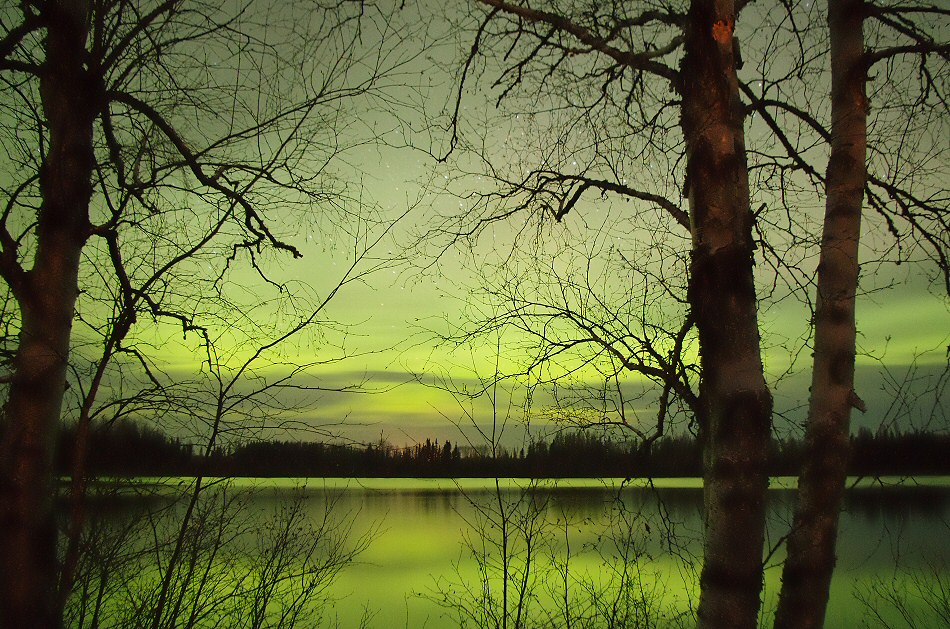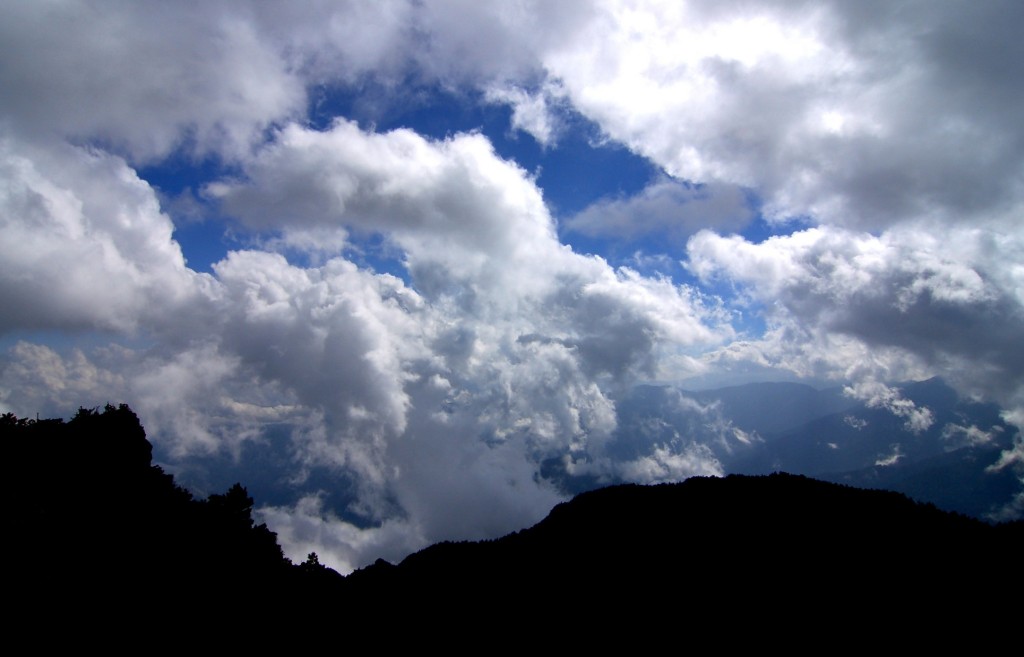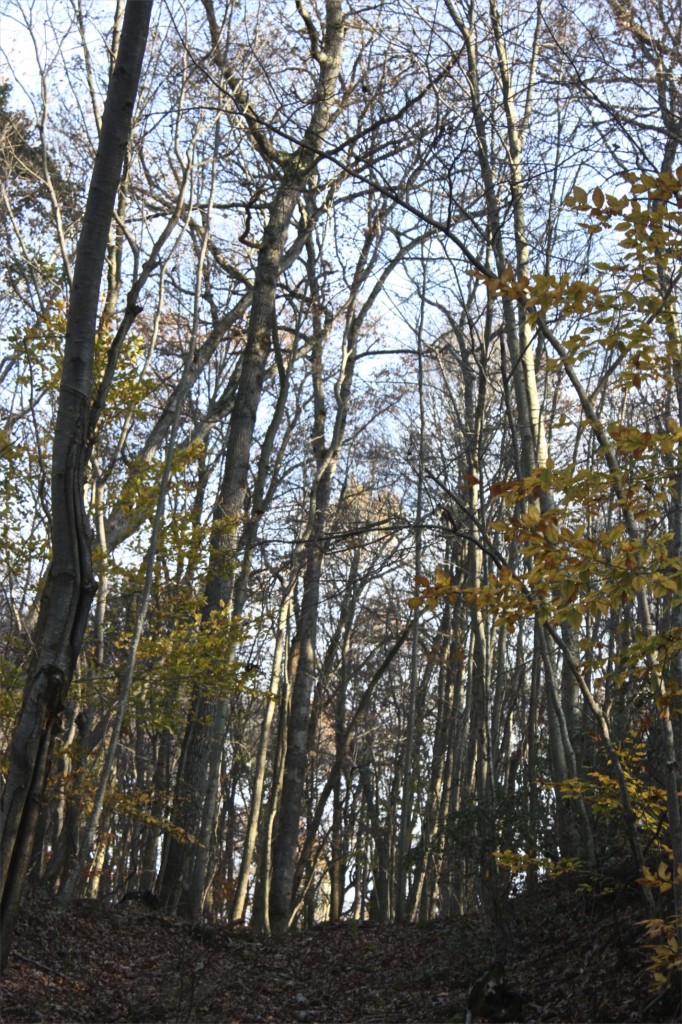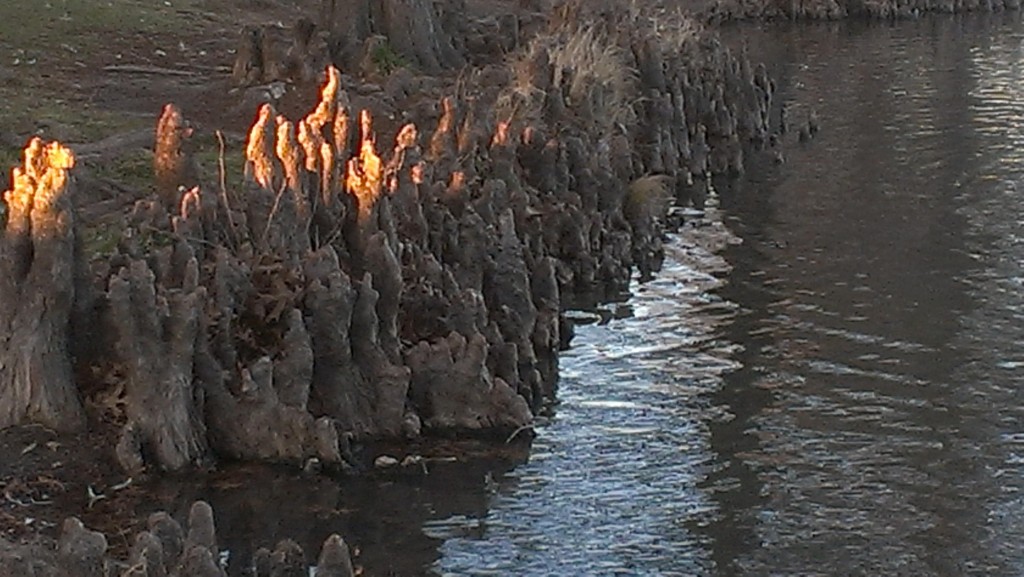The environment produced human beings. The simplest of physical laws interacted through a cycle of entropy and gravity to make stars, galaxies, particles, planets, and even complex and sentient life forms like us. Regardless of religious choice, indecision, or rejection, something within all of us ought to recognize that this ever-evolving system is a miracle. And the fact that we hardly understand the dynamic interplay between forces makes it that much more magical. People are, obviously, intelligent (relative to most ambient life). We consider ourselves sentient (as Descartes said, “Cogito ergo sum,” “I think; therefore, I am”), merely because we discern our consciousness as separate from the environment. It is certainly not the case that sentience depends on knowing how or why our consciousness exists, or most of the human race would not have it (except maybe a few neurobiologists and philosophers). Most people assume that no other animals or plants sense individuality (proto-ego or id-sentience—a primitive form of intellect), with little to no evidence supporting this claim. Our (seemingly) unique capability of thought allows human beings to discern the right action from the wrong actions—or, put more bluntly: ethics. Morality compounds two forms of thinking—logic and emotions—into a mode for decision-making. Philosophy compounds two disciplines—science and humanities—into a common love of wisdom. Spirituality compounds two attitudes—rational and empathetic—in order to develop a deeper understanding of absolute being. Morality, philosophy, and spirituality all correlate to each other. A person’s spiritual beliefs ground all morality, since our rationality and empathy correspond to our relationship with other beings. Spirituality is a subset of philosophy—it lies in the metaphysical, ontological realm concerning static identity. I believe the solution to the encroaching environmental, ecological, and economic calamity rests squarely on the shoulders of a spiritual revolution that takes into account the equilibrium of force and the value of life.
Spirituality is a by-product of self-awareness or the distinction of the self from the surroundings (manifested, in part, due to a circumstance of language: an innate subject). An atheist may also have spirituality. The definition of spirit depends on what makes logical sense and feels right (like most moral decisions). It is a fundamental concept of ego. The memory and personality of a person evolves over time, making it a fluid or relative candidate for identity. Likewise, a person’s physical composition overturns through the course of a lifetime, so it, too, is an ambiguous identity. A spirit has a definite shape, binding the continuum of memory, mood, and physical change by anchoring it to its characterization: an eternal self. An atheist may believe there is no spirit and still have spirituality, just as a moral nihilist believes there is no meaning and yet, because of this, makes a statement about meaning. They might believe the identity of the self constantly changes after birth and until death, with nothing happening outside of that life-span. Their spirituality could be a gratitude for such fortunate circumstances. They may live by the Golden Rule of treating others as they would like to be treated or they might try to weigh the consequences of actions to a community. The spirituality of an atheist can be just as robust, if not more so, than a religious devotee. Whether or not a person believes in relative or absolute, God-given or nature-given, linear or cyclic spirits, they still have to have a definition of spirit to account for them being the same person, despite the fact that their personality, memories, and material existence has changed over time. In a sense, it all goes back to knowing oneself. The adage goes, “One cannot love others until one learns to love oneself.” By the same token, one cannot measure how to treat others until one creates a concrete, stable concept of being.
Religions, institutions of control, like governments, mold our spirituality to a shared understanding. Sometimes, this serves to diminish healthy spirituality. Many American churches embrace a materialistic culture bred from a highly commercialized capitalism in which a good citizen is a consumer and only a few ought to achieve success and make decisions. Although scholars should argue the socialistic messages within Jesus’s Sermon at the Mount and the obvious expressions of universal salvation in verses like “And all the ends of the earth shall see The salvation of our God” (Isaiah 52:10), many Christians have an attitude that celebrating the birth of Christ ought to involve purchasing gifts, giving monetary charity to the church, and only a select few will go to heaven. Religion, in some instances, has robbed many Americans of the liberty to choose for themselves what they believe happens to our soul, the part of us that never changes. By deciding what happens to the thing that doesn’t change (the soul), we can ascertain the proper method of treating the things that do change, the things we can change, including our bodies, other people, plants, animals, and the land.
If a Capitalistic Christian saw the environment—with only a regurgitated, conforming flavor of spirituality—he might believe we should always try to grow the economy by harvesting and then trading resources at an accelerating rate, because God gave us the land to use as we wish, and the economy fails if it does not grow enough. He might think it is fair that only a fraction of the world’s population is not starving, since only a few are supposed to be blessed by God. Many churches, assembling during the height of industrialization, have a view of humanitarian and ecological issues identical to capitalism. (Some may argue too many worship money or maybe Pluto).
The other piece to the puzzle comes from understanding nature, how our environment works. Most theists believe that God created nature. Most atheists believe the highest knowledge comes from understanding how nature works. Regardless, gaps in understandings can be bridged if we contrast the thesis and antithesis. If a soul never changes (as per the definition), then the environment must always change. This change is expressed through energy, through kinetic and quantized energy carried by force bosons like the graviton (which concentrates matter), gluons (which holds the nucleus of an atom together), photons (which causes like charges to repel), and W and Z bosons (which degrades the nucleus, emitting radiation). To make the connection clearer, nature strives for equilibrium between order and chaos. Just as outward pressure from the heat of fusion within a star combats the force of gravity threatening to implode it, a balance must be maintained for a sustainable system. The symmetry of yin and yang, unity and diffusion, absolutism and uncertainty, is an ongoing dialogue between forces. If there was too much order, gravity and the strong nuclear force would collapse our matter, governments would rule over every aspect of our lives, only a small group of people would control all the power, only one predator would dine on all prey, and just a few strains of grain would sustain everyone. Conversely, if chaos tipped the scale in its direction, the electroweak force would spread all particles so evenly that nothing could form, no regulations would hold malevolence accountable for, every person would have an equal say in everything, there would be as many predators as there are prey, and the variety of grains available on the market could not possibly fit on one notecard. There are negative and positive implications to an unbalanced world, in either direction, but when combined harmoniously, a self-sustaining system thrives. Determining the proper proportions for centralization and decentralization, creation and destruction, in terms of every act, ought to be the focus of ethics, as determined by our spiritual values. We ought to conserve God’s harmony as much as possible.
“Historically, GDP has grown substantially. Between 1950 and 2000 world GDP grew by 3.85% annually… Global GDP growth decelerated over time from 2.1% per year in the 1970s, to 1.3% per year in the 1980s, and to 1.0% annually in the 1990s…” (Agriculture at a Crossroads). The economy fails unless there is constant growth, but nature strives for stability. In a sustainable system, the forces ought to balance.
The loss of predators reduces the beautiful ensemble of nature to a poorly conceived—and probably short-winded—solo. An ecosystem needs multiple variables in order to maintain vitality. For example, “The current estimate for the continental United States is about 5,000 gray wolves (Canis lupus). Genetic data suggest that the historic population in this area was roughly 400,000… The closely related red wolf (Canis rufus) is all but extinct” (the Humane Society). Since humans destroyed most predators on land and in the ocean, people and pathogens are the only predators left to check the population explosion in prey. People not only hunt too infrequently to adequately fill the shoes of all the predators we have killed, but, in addition, concentrate on hunting the strongest prey (rather than the weakest, as a natural predator would, using the “path of least resistance,” as thermodynamic entropy would) as a matter of pride, as a matter of ego. Due to the short-sighted desire for plentiful game on behalf of one generation, the eco-system has lost its vibrant diversity. “When top predators disappear from the ocean, their principal prey species, sometimes called mesoconsumers, can increase in abundance… A cascade of effects can occur through several layers of the food web” (The Lenfest Ocean Program).
Our mono-culture industrialized and centralized method of food procurement—yet another example of our inability to attune to nature’s design—threatens to equalize mankind’s ecological impact by neutralizing a large sum of the population. Monsanto provides “the seed technology for 90 percent of the world’s genetically engineered (GE) crops” (Green Peace). For the same reason as to why diminishing variables within the animal food-chain damns the resiliency of our eco-system, relying on only a handful of strains to feed most of the world is an intrinsically dangerous practice. Pathogens have to focus on the same strains we eat, because it is the only food available to them as well. Nature always finds a way to adapt—some mutation that solves a problem.
A human being is a part of the whole, called by us “Universe,” a part limited in time and space. He experiences himself, his thoughts and feelings as something separated from the rest—a kind of optical delusion of his consciousness. This delusion is a kind of prison for us, restricting us to our personal desires and to affection for a few persons nearest to us. Our task must be to free ourselves from this prison by widening our circle of compassion to embrace all living creatures and the whole of nature in its beauty. Nobody is able to achieve this completely, but the striving for such achievement is in itself a part of the liberation and a foundation for inner security (Einstein).
If men insist on the role of “nature’s conductor,” then we ought to take notes from the original orchestra (whether that was created by God, gods, or chance). The problem with human sentience (the ability to isolate our own qualities from the ambience) is that we are too good at it, or perhaps we go about it the wrong way. We seem to think we own the environment or somehow know what the right course of manipulation is merely because we have the mental faculties to attempt it. But without a spiritual foundation, only material value is measured. Society only listens to those with money, as corporations can be considered an entity with rights—but a community cannot (Dartmouth College v. Woodward)—and that money is a form of protected speech (Citizens United v. Federal Election Commission) by our political and legal system. Anything without an economic number associated with its utility drops out of visibility. Plants and animals, I believe, do have spirits, but that is not the reason why I feel a spiritual renaissance inherently solves mankind’s tension with nature. The core of a spirit’s meaning is the quality of the idea’s permanent presence. The soul, some say, survives the body’s decay. A system, culture, a species, can, and ought to, survive one individual or generation. Without the belief in any deity, a person can redefine the soul to mean anything with legacy. The finite member of a system ought to do its best to preserve what gave it meaning. As for those who believe in an intelligent, cause-less cause to the universe and/or multiverse (a supreme being), a devotee should try to preserve God’s system as a measure of worship.
Works Cited
“New movie damns Monsanto’s deadly sins.” Greenpeace. Greenpeace International, n.d. Web. 13 Dec. 2011. <http://www.greenpeace.org/international/en/news/features/monsanto_movie080307/>.
“Frequently Asked Questions about the Gray Wolf in the United States.” The Humane Society. The Humane Society of the United States, n.d. Web. 13 Dec. 2011. <http://www.humanesociety.org/animals/wolves/facts/faq_gray_wolf.html#1_How_Many_Gray_Wolves_ Are_There_in_the_>.
Dimitrov, Vladimir D., PhD. “Complexity, Spirituality and Ethics.” Dr. Vladimir Dimitrov. N.p., n.d. Web. 13 Dec. 2011. <http://www.zulenet.com/vladimirdimitrov/pages/ComplexSpiritEthic.html#6>.
McIntyre, Beverly D., et al., eds. “Agriculture at a Crossroads.” IAASTD. International Assessment of Agricultural Knowledge, Science and Technology for Development, n.d. Web. 13 Dec. 2011. <http://www.agassessment.org/reports/IAASTD/EN/Agriculture%20at%20a%20Crossroads_Global%20Report%20(English).pdf>.
Heithaus, Michael R., et al. “Effects of Losing Top Predators.” The Lenfest Ocean Program. Pew Charitable Trusts, n.d. Web. 13 Dec. 2011. <http://www.pewtrusts.org/uploadedFiles/wwwpewtrustsorg/Reports/Protecting_ocean_life/Top_predator_loss_RSR_FINAL.pdf>.




There are two bright spots for those considering homemade
renewable power systems. As energy prices increase and many homeowners are more conscious of their carbon footprint, solar technology panels have received renewed interest among consumers.
Around $117 billion was committed to projects emphasizing alternative
energy sources like wind, biofuel, solar and geothermal.
That’s great to hear! Thanks for commenting!